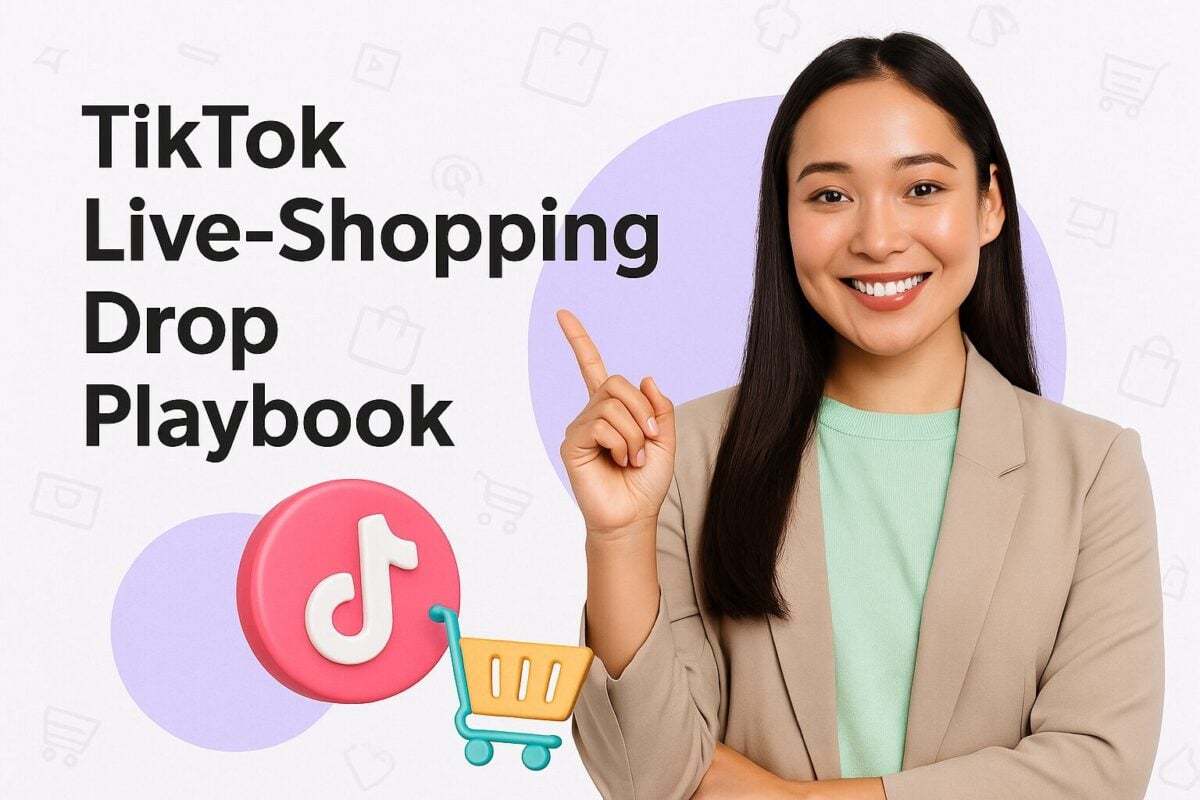Starting an online business is great, however, not all the tasks can be completed virtually. For example, unless you’re selling subscriptions or digital products, the actual products will need to be stored somewhere, right? This can create massive logistical nightmares.
Enter dropshipping. It can be especially attractive to those wanting to test the water first as well as small businesses. As your actual stock will be kept by a third party, this business model can free up considerable space and time. Plus, as it will never really be “your stock” (you’ll only order the actual product once you’ve generated a sale), it comes with less risk.
The goal of this article, though, isn’t to answer all the FAQs about dropshipping, but rather to equip you with the tools to get started. One of the most critical tools will be your website. Here are 11 of the best eCommerce platforms that you can use if you specifically want to start a dropshipping business.
11 of the Best eCommerce Platforms for Dropshipping Compared:
1. BigCommerce

Countless eCommerce websites use BigCommerce, including well-known brands like Solo Stove and Black Diamond. Not only do they have an impressive list of users, but also hundreds of online reviews to serve as more social proof. What’s more, they’ve been featured in Caperra’s shortlists for eCommerce and website builder software solutions two consecutive years and as top performers.
BigCommerce offers an impressive set of tools to help you with various key tasks like design, marketing, and analytics. On top of this comprehensive selection of tools, it also offers a lot of professional support and resources.
As for dropshipping, it offers an integration with Spocket that you can check out. Sprocket is rated as one of the best platforms for finding dropshipping suppliers in North America, Europe, and several other regions. Thanks to this integration, you’ll be able to start dropshipping in a matter of hours as all it takes is a few clicks to add products from its supplier network to your store.
Key features:
- 24/7 support
- Real-time shipping quotes
- Integrations with several top payment gateways
- A single-page checkout
- Coupons, gift cards, and discount rules
- Product ratings and reviews
Plans and pricing:
After a free 15-day trial, pricing starts at $39 per month. However, when you opt to be billed annually, you’ll pay only $29 per month — a very generous saving of 25%. You also won’t be charged any transaction fees.
2. Wix

Wix users can integrate their online store with Modalyst to start dropshipping products. All in all, it’s pretty straightforward and after creating an account and customizing one of their professional store templates, you simply need to add the Modalyst app to your website.
In short, the Modalyst app is a dropshipping platform that links online stores with reliable suppliers that offer millions of products. One of the perks of using Modalyst is that it also includes a white label solution. So, if you’re thinking about customizing your packaging, you can use it to add your own branding to your packaging.
After you’ve connected to the Modalyst marketplace, all that’s left to do is search for products using filters like category, price, or gender. Similarly to a platform like Weebly, Wix also lets you customize your product pages. Combine that with its white label features and it’s a great powerful if branding should take center stage.
This is where your work basically ends. It’s now over to your dropshipping suppliers that will take care of fulfillment and shipping.
Key features:
- Online store templates with built-in business tools
- A dashboard from where you can track orders
- An owner app
- Automated sales tax
- Dozens of payment solutions
- Print-on-demand integrations
Plans and pricing:
Wix offers 4 pricing plans. Pricing starts at only $17 per month.
3. WooCommerce

WooCommerce needs no real introduction. It boasts the biggest market share of 35%, according to online stats.
Included in its list of WooCommerce extensions is WooCommerce dropshipping. It’s a powerful store management tool that simplifies the process of managing a dropshipping business.
If you use AliExpress as a dropshipping supplier or want to become an Amazon associate, it’s a great choice. Thanks to its integration with AliExpress, you can create profit margins for products sourced on AliExpress using a fixed amount or a percentage.
Then, to help you stay up to speed with sales and track business growth, you can visit its dashboard where you’ll find details about number of orders, out-of-stock products, best-selling products, and more.
If you want to use a local supplier, you can do that too. It lets you assign products to local dropshipping suppliers allowing them to fulfill orders via your website.
It also offers a Pro Add-on that you can use to customize customer communication. This way, you can include your own branding in all the order notifications as well as edit elements like font color and size. You can also extend this customization to the packaging by changing the wording of labels.
Key features:
- 24/7 support
- Automated order notifications to suppliers
- Amazon Affiliate support
- A dashboards with key data
- Bulk import products from AliExpress
- Customized email notifications
Plans and pricing:
Both WordPress and WooCommerce are free, open source software solutions. However, to launch a new store, you’ll still have some costs involved. For example, you’ll need to pay for hosting, registering your domain, potentially themes, and essential functions like shipping and payment gateways. This can work out anything from $10 to $1,000 per month.
4. Squarespace

Some tech names start in garages, others, like Squarespace, start in other small spaces like a dorm room. Fast-forward 21 years after its humble start, Squarespace has grown to a team of over 1,760 employees working from their NYC-based headquarters spanning 150,000 square feet. In addition to their headquarters in New York, they also have an office in Chicago and Dublin.
Its platform can help beginners as well as established brands create eCommerce websites that stand out. In addition to website building tools, it also includes marketing and social media tools to generate more organic traffic. You can then use third-party services like Spocket, ShipStation and Printful to outsource order processing and shipping.
They’ve received thousands of reviews on popular review sites like Capterra, making them one of the most-reviewed platforms fit for dropshipping on this list. What’s more, it’s been one of Capterra’s top performers in the website builder software category for three consecutive years.
Key features:
- Mobile-optimized website templates
- Advanced website analytics
- Promotional banners and popups
Plans and pricing:
After a free 14-day trial, pricing for eCommerce websites starts at $25 per month (or $16 per month annually). However, if you opt for the Business plan, you’ll also be charged a 3% transaction fee and credit card processor fees. To avoid paying transaction fees (excluding credit card processor fees), you can sign up for any of its Commerce plans starting at $40 per month (or $28 per month when billed yearly).
5. Adobe Commerce (Formerly Magento)

If you want to explore powerful functionality offered by artificial intelligence, you can check out Adobe Commerce. It uses sophisticated data sharing and AI to create end-to-end personalized commerce experiences to improve key touchpoints such as product recommendations.
Used by brands of all sizes across various industries, Adobe Commerce includes a page builder among its list of powerful features. Thanks to its drag-and-drop functionality, content management is easy. It also includes useful marketing tools like customer segmentation and product recommendations.
As for its dropshipping features, there are several software solutions that integrate with Adobe Commerce. Included in its list of dropshipping apps integrations are popular inventory management, fulfillment and shipping software like Fishbowl and Shipwire.
Key features:
- AI-fueled product recommendations
- A catalog service for fast product and category data retrieval
- An AI-powered live search tool
- Customer account management
- Reporting and visualizations
Plans and pricing:
Customized pricing is available upon request.
6. Weebly

Weebly offers a website and eCommerce service that forms part of Square’s commerce offering. It has received loads of online reviews and along with BigCommerce, Squarespace, Shopify, and Wix, it has also been highlighted in Clutch’s 2023 eCommerce Software Shortlist as one of the top performers.
If you specifically want to use the dropshipping approach, you can check out its Wholesale2b Weebly app. With the help of this app, you can import products from more than 100 dropship suppliers to your online store.
It includes a Weebly listing tool that will push products directly which means that the only thing that you’ll need to do is select the best dropshipping products to sell to your specific niche. What’s more, it will also apply daily updates automatically. This means that your website will stay updated without you having to lift a finger.
That said, you’re still given loads of freedom. You can, for example, set up markups on prices and determine the shipping costs. In addition to pricing flexibility, you can also edit the product titles and descriptions.
Key features:
- Free SSL security
- An automatic tax calculator
- Vouchers and gift cards
- Item badges to highlight sales and low stock
Plans and pricing:
Weebly offers a Free plan and 3 paid plans with pricing starting at only $10 per month.
7. PrestaShop

PrestaShop is an emerging favorite in the small business eCommerce software category. It’s a modern eCommerce platform that hundreds of thousands of merchants trust to power their online store.
One of its unique selling points is that it’s open source. This offers great flexibility and customization There are thousands of themes and modules available on its marketplace that you can use to improve the overall performance of your website to create a better store experience.
If you specifically want to use it for starting an online dropshipping business, you can do so in five steps. All you need to do is choose a host and domain name, create your website, import your products and select your payment and shipping software/ methods. Setting up your shipping is one of the most challenging steps of getting started with dropshipping, but PrestaShop includes modules with the services of some of the biggest shipping companies. There are dozens of modules that can help you to import bulk products from AliExpress or Amazon, for example.
Key features:
- Data ownership
- Advanced SEO features
- Several online payment solutions
Plans and pricing:
It offers a free basic edition. Hosting plans are available from €24 per month.
8. OpenCart

OpenCart is another free open-source platform that you can check out, making it a good alternative to PrestaShop. Its marketplace with modules and themes is about double the size of PrestaShop’s offering and this also applies to its dropshipping extensions.
It’s trusted by nearly half a million eCommerce entrepreneurs, local businesses, and corporations. One of its attractive features that make it such a popular platform for selling online is its admin dashboard. Here you can get a quick overview of all the key info like total orders and sales analytics. And, if you dream of becoming an eCommerce mogul, it also lets you manage multiple stores conveniently via a single admin interface.
Key features:
- Product variables options
- Discounts, specials, and coupons
- Several affordable templates (free ones also included)
Plans and pricing:
OpenCart is available free of charge.
9. Shift4Shop

Shift4Shop offers a turnkey eCommerce solution that includes a website builder, marketing tools, and features to help with product and order management. Trusted by over 200,000 users, Clutch has listed it as a noteworthy product for eCommerce website design.
It offers all the key features you need to launch an online business, including the tools needed to connect with dropshipping suppliers. What’s more, with Shift4Shop you can also take a hybrid approach as you can specify which products should be dropshipped and which ones can be fulfilled by your company.
Plus, thanks to its built-in integration with some of the top dropshippers, you can pretty much put key tasks on autopilot. For example, emails notify your dropshipping supplier about a new order or cancellation will get sent automatically. Another powerful example of automation is that it will work out shipping rates per product from the location of your supplier in real time.
Key features:
- A free SSL certificate
- A free domain name
- Website themes
- AI-powered fraud protection
- A single-page checkout
- Product reviews
- Free store migration
- 24/7 customer support
Plans and pricing:
It offers a free enterprise-grade plan that’s suitable for dropshipping. To qualify for this free plan, though, you’ll need to process at least $1000 per month.
10. Volusion

Volusion’s dropshipping partner is Doba. Along with Spocket, it’s also rated as one of the top dropshipping suppliers. While they have strict standards and a single online catalog with hundreds of suppliers and over a million products, the products are more expensive. Also, you’ll still need to pay a set monthly fee to use Doba, shipping fees, and in some cases also a dropshipping fee.
Also, there’s at this moment no direct interface between Doba and Volusion. Instead, you’ll need to pull the product info from Doba into your eCommerce store and then order the product(s) via Doba if customers order it.
That said, you get secure supply chain support and a dedicated account manager.
As for Volusion’s eCommerce capabilities, the customer service and intuitiveness are the features that stand out according to users. However, compared to some of the other eCommerce platforms mentioned on the list, it lacks in third-party integrations and overall value for money.
Key features:
- SSL certificate
- Your own custom domain
- Mobile-first website themes
- Integrated payment processing powered by Stripe
Plans and pricing:
After a free 14-day trial (no credit card required), pricing starts at $35 per month.
11. Shopify

Shopify is one of the most popular eCommerce platforms. Much of their popularity can be linked to their customer experience, intuitiveness, and long list of features and integrations.
All plans include an eCommerce website and blog that lets you add unlimited products. Not only is it easy to use, but round-the-clock support is available even to users who signed up for their entry-level plan.
What makes it such a great platform for dropshipping specifically is that you can assign inventory to up to 1,000 inventory locations. In addition to warehouses, these include retail stores and popups.
Key features:
- 24/7 support
- Discount codes and gift cards
- A free SSL certificate
- Customer segmentation
- Marketing automation
- Abandoned cart recovery
Plans and pricing:
After a free three-day trial (no credit card required), pricing starts at $29 per month when billed yearly (no extra setup fees required). It also charges between 0.6% and 2% transaction fees, with the more expensive plans being charged a lower percentage.
How to Choose the Right eCommerce Platform for Dropshipping: A Step-by-Step Guide
Choosing the right eCommerce platform is crucial for the success of your dropshipping business. Here’s a step-by-step guide to help you make an informed decision:
1. Identify Your Business Needs
Start by outlining the specific needs of your dropshipping business. Consider the types of products you plan to sell, the size of your inventory, and the scale at which you intend to operate. This will help you identify the essential features your eCommerce platform must offer.
2. Evaluate Platform Features
Research various eCommerce platforms and assess their features. Look for dropshipping-specific tools, such as inventory management, order automation, and integration with suppliers. Also, consider the platform's scalability, SEO capabilities, and customer support options.
3. Consider Ease of Use
The platform should be user-friendly, both for you as the business owner and for your customers. A straightforward setup process, intuitive interface, and customizable templates are key factors. This will ensure you can manage your store efficiently and provide a smooth shopping experience for your customers.
4. Check Integration Options
Your chosen platform should integrate seamlessly with your suppliers, payment gateways, and shipping providers. This will streamline your operations, from product sourcing to order fulfillment. Also, ensure it supports integration with third-party tools like email marketing software and analytics tools.
5. Assess Pricing Plans
Review the pricing structures of different eCommerce platforms. Consider the cost of the platform itself, transaction fees, and any additional costs for apps or plugins. Make sure the pricing aligns with your budget, especially as your business grows.
6. Evaluate Security Features
Security is paramount in eCommerce. Ensure the platform offers robust security features, including SSL certification, secure payment gateways, and data protection measures. This will protect your business and your customers' sensitive information.
7. Consider Scalability
As your dropshipping business expands, your eCommerce platform should be able to grow with you. Choose a platform that can handle increased traffic, more products, and higher sales volumes without compromising performance.
8. Read Reviews and Get Feedback
Before making a final decision, read reviews and testimonials from other dropshippers. This can provide valuable insights into the platform's reliability and customer satisfaction. You might also join online forums or communities to get firsthand feedback.
9. Test the Platform
Most eCommerce platforms offer a free trial or demo. Take advantage of this to test the platform’s features, ease of use, and customer support. This hands-on experience will help you determine if the platform meets your needs.
10. Make Your Decision
After thorough research and testing, choose the platform that best aligns with your business goals, budget, and operational needs. Once selected, invest time in setting up your store correctly and optimizing it for success.
Wrapping Things Up
Just like with other types of businesses, a good eCommerce dropshipping platform should be intuitive. Sure, built-in marketing features like SEO are attractive and will go a long way in helping you to grow your business, these will be of less use if you’re having difficulty with the setup up process. For this reason, make user-friendliness your top priority.
The only real difference when choosing a platform for dropshipping is that it should integrate with suppliers. So, after you’ve found a platform that you find easy to understand and use, let its list of integrations guide you further.
Frequently Asked Questions
What is dropshipping?
Dropshipping refers to a business model whereby online stores buy the products that they want to sell via a third party which will then deliver it directly to the store’s customers. In other words, the online store will never keep the products that they list on their website in stock. They will only buy the stock whenever a sale is made. While a dropshipping business won’t have to take care of stock, fulfillment, and shipping, they’ll be responsible for website creation and maintenance, marketing, and customer service.
Does running a dropshipping business have any cons?
There are a number of disadvantages that can make dropshipping more challenging. The biggest drawback is probably that the profit margins are generally lower. It also doesn’t offer a lot of opportunities for branding. Most of the time, the products will have the supplier’s branding (that said, some platforms do include a white label solution). Another con is that it can be more difficult to work out shipping fees, especially if you use multiple suppliers.
What should you do if your dropshipping supplier made a mistake?
Dropshipping suppliers can make mistakes and when this happens it will be your name on the line. As the supplier is an invisible third party, you’ll need to own the blame when dealing with the customer. If the customer is unhappy, you can, for example, offer a free upgrade or refund the shipping cost, depending on the nature of the complaint. After the customer’s complaint has been addressed, you can then take it up with the supplier yourself. If mistakes happen regularly, find a new supplier.
How can you market your dropshipping business?
Search engine optimization (SEO) and paid search and social remain the best ways to market your dropshipping store. Double-check that your website content uses a mixture of short-tail and long-tail keywords. As for paid marketing, both Facebook Ads and Google Ads can be effective.
What are some of the best dropshipping companies and tools to use?
There are several reliable suppliers and a variety of dropshipping apps that you check out like:
- AliExpress
- Doba
- Modalyst
- Printify
- Spocket
- FIshbowl





